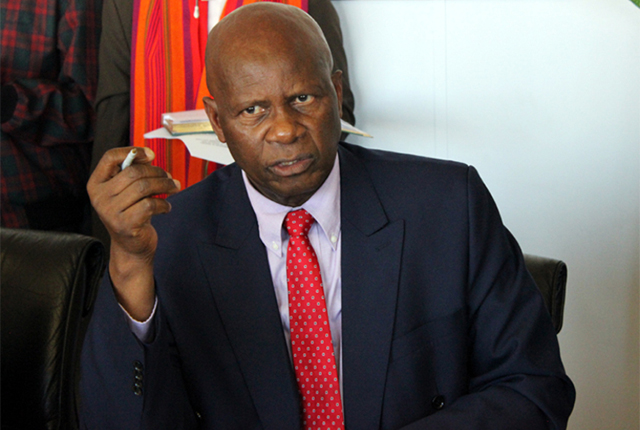Unpacking Chatham House 2016 Zimbabwe Report

Obi Egbuna Jr Correspondent
ON Thursday September 8, 2016 the Director of the Africa Programme of the UK-based Think Tank Chatham House Mr Alex Vines was hosted by the US Institute of Peace (USIP) in Washington DC, for the purpose of releasing the recently completed research paper entitled The Domestic and External Implications of Zimbabwe’s Economic Reform and Re-engagement Agenda, the co-authors are Knox Chitiyo and Christopher Vandome.
Mr Vines was on a panel alongside Mr Witney Schneidman
The Africa Director for Covington and Burlington LLP and Mrs Nicole Wilett-Jensen the Vice President of the Albright Stonebridge Group.
The paper is 45 pages and begins with a Summary and Recommendations leading into four areas of concentration, which are as follows Economic Competitiveness and Accelerated Decline, Zanu-PF’s Reform Agenda: Ideological Repositioning and Policy Pragmatism, and finally Political Threats.
Before Zimbabweans in general and Africans in particular have any meaningful and frank discussion around Chatham House’s paper, the first question that must be raised is surrounding a peculiar comment made by the SR Advisor to USIP Ambassador Johnnie Carson who served as the moderator of the forum. Ambassador Carson revealed that Chatham House received the paper exactly one month before the forum took place, this dynamic leads to two more fundamental questions, was this the established criteria in order for Chatham House to present their paper before USIP? And lastly did Mr Schneidman and Mrs Wilett-Jensen need to peruse the paper prior to the forum because they lacked initial confidence in their position and arguments?
Some of the key points in the Summary and Recommendation segment of the paper in the humble opinion of Mr. Vines and his co-authors are Zimbabwe is at a watershed, faced with its most serious economic crisis since 2008.
The gravity of the economic situation has forced the Zimbabwean Government into a process of re-engagement with the West. The Government must now commit to a long term strategy that includes political reform to buttress economic advances. Confidence will be built on delivery, not on rhetoric.
Successful reform requires unified and sustained commitment on the part of Government. The severity of the crisis means that ‘muddling through’ is not a long term option, particularly as international partners could walk away if they sense that Zanu-PF is just seeking short term financial relief.
International partners must also show a commitment by bringing fresh thinking to Zimbabwe’s current crisis evolving transition to a post Mugabe era. Beyond the potential of a major humanitarian and economic emergency within Zimbabwe, the wider region is less resilient than was the case in 2008, and an unstable Zimbabwe will have significant regional impact.
Although the EU and Australia have reviewed their Zimbabwe strategies, including responding to Harare’s re-engagement strategy by revising and in some cases easing their sanctions, the US and Canada have lagged behind with outdated sanctions lists.
At a time when the US administration is reviewing its strategy towards Sudan and its head of state, Omar al-Bashir US policymakers should do so too with regard to Zimbabwe.
The paper begins with the following introduction “The government of Zimbabwe has adopted a programme of economic reforms in an attempt to curtail accelerating economic deterioration and a humanitarian crisis. The pressure on citizens struggling to survive is increasing, and the government is faced with a race against time to bring about meaningful change to livelihoods. What is required is the assistance of the international community and investors, but their support will depend on the government enacting a far-reaching economic and political reform programme.”
The paper quotes former Minister of Finance and opposition leader Tendai Biti’s paper Rebuilding Zimbabwe lessons from a coalition government:
Weakened by decades of poor governance and economic mismanagement, Zimbabwe has little resilience.
The story of decline has been widely told. Poorly implemented, populist and politically motivated land reform and indigenisation programs hollowed out the rural economy and pushed it into a decade of implosion.”
Both Mr. Vines and Ambassador Carson openly admitted that President Mugabe and Zanu-PF have won the propaganda war against Western Imperialism on the question of US-EU sanctions on Zimbabwe, Mr Vines who made mention of the fact that he has previous experience as a UN sanctions observer, found it quite intriguing that Zimbabweans whom he considers extremely intelligent blame sanctions for the country’s economic woes and not woeful economic policies.
Mr. Vines also said the US government assumed that the opposition would win the 2013 Presidential elections and many western diplomats did not have any serious players in Zanu-PF in their list of contacts when it came time to depart from Harare.
Mr Vines also discussed in a surprisingly sarcastic tone how the US and Canada sanctions lists were outdated, this was a follow up to Mr Schneidman raising the question why former Zimbabwean Vice President Joice Mujruu was still on the US government’s sanctions list.
While the thrust of Mr. Vines remarks were focused primarily on re-engagement perhaps he did not realise that the best way to describe US Imperialism’s think tank apparatus/community is a game he more than likely played as a child called musical chairs.
We can look at the careers of Ambassador Carson, Mr Schneidman and Mrs Wilett-Jensen to bring this point home. Mr Schneidman was Deputy Assistant Secretary of State for African Affairs from 1997-2001, Special Adviser to the Vice President for Africa at the World Bank, Co-Chair of Africa Experts Group for the Obama Campaign for the Presidency and member of the Presidential Transition Team.
Mr Schneidman is also the current non- resident fellow for the African growth initiative for the Brookings institute. Mrs Willett-Jensen ran National Security Council African Affairs desk from 2010 to 2012 and 2013, the SR Advisor Chief of Staff to the US Ambassador to South Africa and lastly a Sr professional staff member to the Senate Foreign Relations Committee.
These credentials help the African world digest and contextualise Mr Schneidman’s and Mrs Wilett Jensen’s remarks, when Mr Schneidman stated the Zimbabwe issue has been locked in the US-Africa policy draw.
This was rather shrewd rhetoric on Mr Schneidman’s part because not only has he been at the forefront of isolating Zimbabwe, based on his resume he could have pleaded with the administration to not exclude Zimbabwe from the US-Africa business summit, especially when Zimbabwe was on the verge of chairing SADC and the AU.
Mrs. Willet-Jensen was the most verbose and openly stated she lacks optimism about re-engaging Zimbabwe, she was rather smitten when discussing the This Flag movement in connection to International donor community allocating resources if President Mugabe and Zanu-PF have not made political and economic reforms that meet the satisfaction of the west. This explains why around the time when Zimbabwe’s Minister of Finance Patrick Chinamasa was spearheading the efforts to re-engage the west, Pastor Evan Mawarire popped out of nowhere resembling a political version of a Jack in the box.
Mr Vines made an error when he did not challenge the racist angle of Mrs. Jensen’s decision to refer to the land reclamation program as a farm grabbing scheme.
Neither Mr. Schneidman and Mrs. Wilett-Jensen commented on why both the US Senate and Congress refused to vote on a bill submitted by Republican Senator James Inhofe of Oklahoma to repeal the Zimbabwe Democracy and Economic Recovery Act of 2001.
When Mrs. Wilett –Jensen went on a tangent opposing International Financial Institutions allocating resources that President Mugabe and Zanu-PF can use to help establish economic stability, due to a lack of democracy and human rights, she apparently was functioning from the understanding that we are ignorant of the mandate of ZDERA which clearly states,
‘’The Secretary of the Treasury instructs the US Executive Directors of each international financial institution to oppose and vote against the following
1. Any extension by the respective instruction of any loan credits or guarantee to the Government of Zimbabwe.
2. Any cancellation or reduction or indebtness owed by the Government of Zimbabwe to the US or any financial institution.
The workshop was concluded by Ambassador Carson stating that in 2013 he made an ultimatum to President Mugabe that if they allowed the Carter Center, National Democratic Institute, and International Republican Institute to observe the elections, in return he would do everything in his power to life US-EU sanctions on Zimbabwe. One of the basic tenets of genuine diplomacy is to present an overture that lets the other side feel you are objective and flexible, this overture was the equivalent of Ambassador Carson spitting in President Mugabe and ZANU-PF’s face.
We are happy that Mr. Vines learned how hell bent and invested the US Imperialist think tank apparatus has become in making a regime change agenda in Zimbabwe a reality.
Obi Egbuna Jr is the US Correspondent to the Herald and External Relations Officer to ZICUFA(Zimbabwe-Cuba Friendship Association)his email is [email protected] <mailto:[email protected]>








Comments